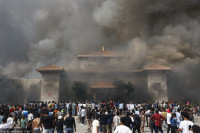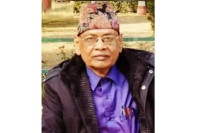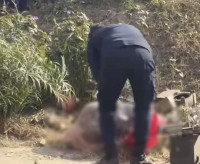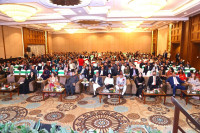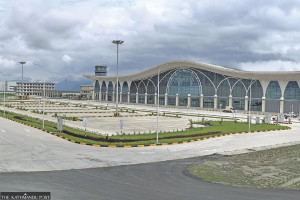Valley
Nepal to emphasise civil rights, liberties assured by new statute
Nepal is set to present its newly adopted constitution as the country’s major achievement towards safeguarding human rights during the Universal Periodic Review (UPR) session in Geneva.
Nepal is set to present its newly adopted constitution as the country’s major achievement towards safeguarding human rights during the Universal Periodic Review (UPR) session in Geneva.
The newly formed government believes the new constitution has guaranteed political, cultural, economic and civil rights of the public,
as recommended by the
UPR in 2011.
A 14-member delegation, led by Deputy Prime Minister and Foreign Minister Kamal Thapa, will represent Nepal in the 23rd UPR session scheduled to begin on November 1. Nepal session is scheduled to take place on November 4.
“The new constitution has addressed many commitments that was made in the last session, while a few are in progress,” said Ramesh Dhakal, joint secretary of Law and Human Right Division at the Office of the Prime Minister.
He argued the government has made a significant progress in rights protection through constitution. Religious freedom, gender equality and autonomy to the National Human Rights Commission are other achievements of Nepal.
Nepal constitution has declared Nepal a secular state. The word “secular” is defined as “protection of religion and culture being practiced since ancient times and religious and cultural freedom”.
The government has also set up Truth and Reconciliation Commission and Commission for Investigation on Enforced Disappeared Persons to
look into cases of rights
violations during the decade long insurgency.
“We have formulated many other policies and some bills at the Parliament for deliberation,” said Dhakal.
The UN member states could still challenge Nepal on many issues. Nepal has not yet criminalised enforced disappearance and torture, which was a major recommendation of the previous UPR session.
Likewise, Track Impunity Always, a Geneva based rights organisation, has pointed out Nepal’s failure to remove 35-day statute of limitation on rape cases, which is at odds with international standards, legal lacunas of the newly established transitional justice mechanism and their activities. The government indifference to investigate, prosecute and sanction those responsible for gross human rights violations during Terai unrest could also be raised.
Human Rights Watch had recently released a comprehensive report on rights situation in Tarai, stating the use of arbitrary and disproportionate force, and extrajudicial killings by police against protesters.




 14.12°C Kathmandu
14.12°C Kathmandu